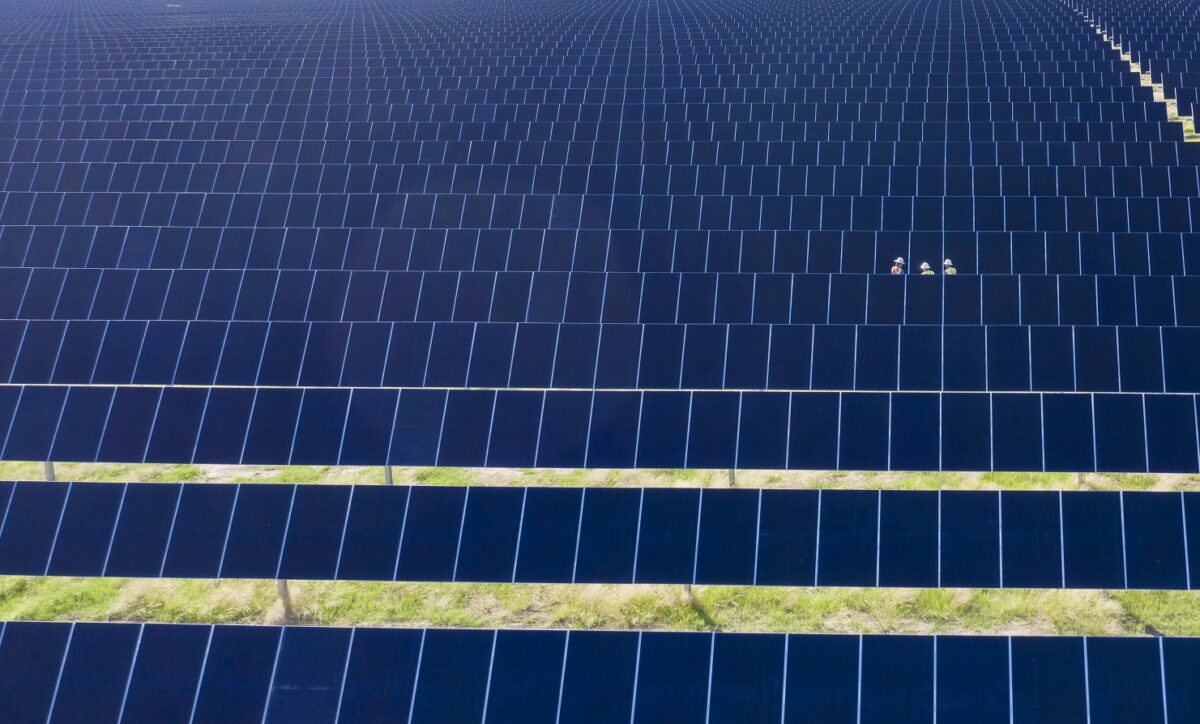Energy buyer’s guide part 3: Who do you need on your team for successful renewable energy procurement?
Third article in a series by Emilie Wangerman, Head of USA, Interim COO:
Buying renewable energy requires commitment and the right team
Energy buyer guide part 2: Why are you buying clean energy? I discussed how your goals and commitment to renewable energy influence your options. This article focuses on how the structure of your team and your energy management strategy will influence your purchase process.
Who procures energy for your company?
The role of the person overseeing energy purchases varies from company to company, but successful procurement requires commitment from the top. I’ve seen more attempts to source renewable energy falter without the leadership team’s support.
Below, I describe a few of the key roles involved in the process, and why their engagement is crucial to a successful procurement strategy. As you will see in this piece, each of these team members plays an important role in sealing the deal.
These days, many large corporations have a chief sustainability officer (CSO). The CSO is responsible, amongst other things, for improving sustainability metrics and reducing greenhouse gas emissions. The CSO understands how renewable energy can help achieve corporate sustainability goals and plays an important role in garnering support from the C-Suite.
With any decision to procure renewable energy, it is important to have the chief financial officer (CFO) engaged in the process. The CFO will determine the value of a contract. The CFO is key to the approval process and can help ensure the contract provisions meet a company’s financial and risk requirements.
Similarly, some organizations have a chief risk officer (CRO) who assesses competitive and regulatory threats. The CRO may be looking at a long-term energy contract as a way to mitigate volatile energy prices.
In addition to this leadership, a procurement team can help ensure smooth implementation. This team will manage the day-to-day negotiations of the contract and may include long-term contract management as well.
Accounting considerations
Mark to market accounting—where values are adjusted based on market conditions—comes into play for projects that have derivatives. When I talk about derivatives, I’m talking about financial transactions for a tradeable product. A good example is a Virtual PPA (VPPA), where you have a contract for differences relative to the market. It’s a financial transaction you’re settling based on how the market is performing. If your business utilizes IFRS accounting (International Financial Reporting Standards), you probably have requirements to use mark to market accounting to track your VPPA.
It is important to involve someone from your accounting department or your controller so that person is aware of the commitments you are making, especially if your purchase involves derivatives.
Who manages energy for your company?
Facilities managers understand how daily operations dictate energy needs for a specific facility or group of facilities. But a facility manager’s scope may be limited to a specific site, while renewable energy procurement is sometimes managed on a broader scale across multiple locations.
A centralized energy management team can manage the negotiation of a clean energy contract to meet clean energy goals across a company’s operation and service areas. For a Physical PPA, which requires physical delivery of the energy, the facility manager may be more engaged in the transaction and long-term management. But for a financial product, like a VPPA or another derivative, the transaction may be managed by the centralized team or the finance department.
Large tech corporations with significant electricity demand, such as Google, Meta, or Microsoft, have dedicated energy procurement and renewable energy management teams. Other companies may not have this level of staffing because they have less energy demand or are just starting to pursue renewable energy procurement.
The good news is renewable energy procurement is for any company, not just the Googles of the world.
Many companies use a centralized procurement team to handle contract negotiations and management, but as long as your company includes engagement from the above-mentioned management and you have a clear plan, then you have the ability to procure renewables.
If this still feels like a lot for your organization, you might consider a consultant to serve as your procurement team. Consultants work with you to identify your needs and manage the initial procurement and negotiation process for renewable energy. There are also organizations like the Clean Energy Buyers Association who offer educational resources.
You can also use a retail energy provider to procure renewables on your behalf. Right now, you probably buy your electricity either from your utility (in a regulated market) or a retail energy provider (in an unregulated market). A retail energy provider can purchase and build renewable portfolios on their customers’ behalf. The retail provider would manage the risk as well as the contracts. As their customer, you are uniquely positioned to create demand for clean energy, and you might be surprised by how much power you already have.
I will talk more about that in my next article, which will discuss how your location will determine if you can directly access wholesale energy or if regulations require you to sleeve through your utility.
Emilie Wangerman first published this article on LinkedIn in on August 8, 2022. To leave a comment or question, please view the original post here.
About the author:
Emilie Wangerman brings 13 years of energy industry experience across energy procurement, customer programs, operations, power marketing, acquisitions, and growth strategy to her role as the Head of USA, Interim COO for Lightsource bp. She joined Lightsource bp in late 2017 to significantly accelerate expansion into the U.S. market. Since then, the U.S. team has developed more than 3.4GW of projects, raised more than $4 billion in project financing, and built a strong pipeline of over 30GW. During 6 years under Emilie’s leadership, the business development team executed more than 4GW of power contracts with a wide range of power purchasers that include universities, utilities and well-known brands such as McDonald’s, eBay, Verizon, and Amazon. The team also acquired over 15GW of projects to support the greenfield pipeline.
Prior to Lightsource bp, Emilie held leadership positions at Pacific Gas and Electric (“PG&E”) and Intel Corporation. Emilie received a Bachelor of Science in both Chemical Engineering and Psychology from Rensselaer Polytechnic Institute, a Master of Business Administration at Duke University’s Fuqua School of Business, and a Master of Environmental Management at the Nicholas School of the Environment.
Read Emilie’s leadership story here.
Partner with us: Energy Buyers
Discover how Lightsource bp works with largescale energy buyers to execute power purchase agreements customized to your business needs.
More from our Energy Buyer's Guide
25 May, 2022
Energy buyer’s guide part 2: Why are you buying clean energy?
Article by Emilie Wangerman
23 Aug, 2022
Energy buyer’s guide part 4: The many advantages of the Inflation Reduction Act
Article by Emilie Wangerman
09 Nov, 2022
Energy buyer’s guide part 5: Where are you buying clean energy?
Article by Emilie Wangerman




